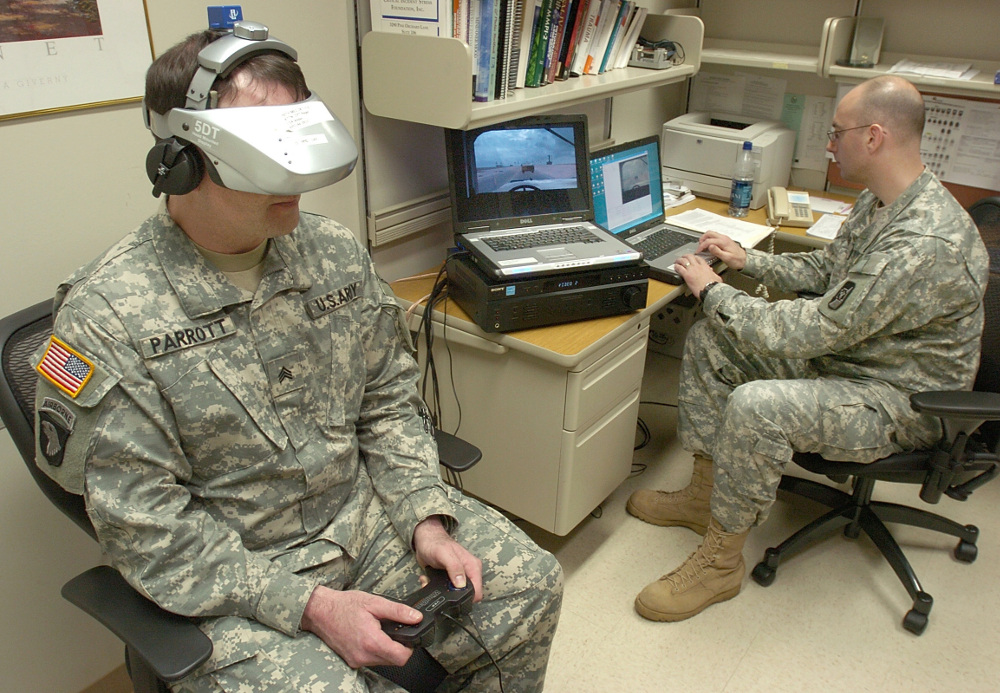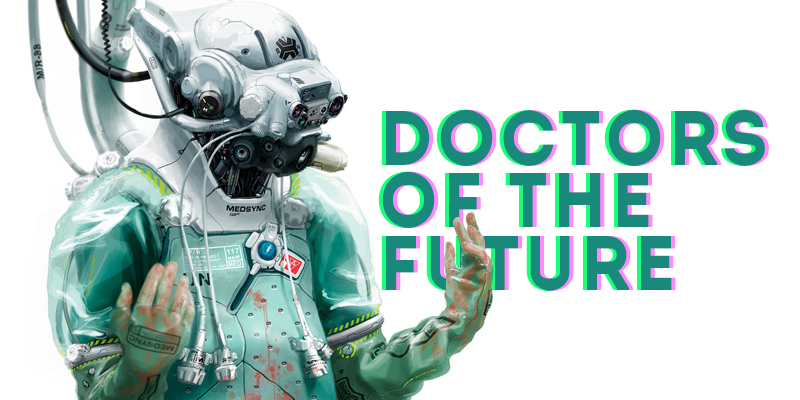The exciting (and frankly long-awaited) strides being made in Virtual Reality over the past 12 months will open up many opportunities for a wide array of industries, from video games to motion pictures. Yet, it’s the healthcare industry, and those who operate within it, that could benefit more than most.
The adoption of VR technologies will allow healthcare practitioners to tap into data like never before. By utilizing VR hardware in their day-to-day practice, they will have access to real-time information as they undertake surgeries, examinations, and diagnoses.
This year in particular will see VR at a tipping point, from sci-fi into sci-fact; high-end consumer hardware such as the HTC Vive and the Oculus Rift will put Virtual Reality into the hands of enthusiasts the world over.
And while it is certain the growth of this estimated $80 billion market will largely be driven by the video game industry, healthcare VR applications will more than play their part too.
Disrupting the Healthcare Industry
For many doctors, scientists, and researchers it has been a waiting game when it comes to Virtual Reality for healthcare. Ever since the first VR prototypes were developed over two decades ago they could see the potential in the technology for treating and diagnosing patients, yet it is only recently the tech has become more commercially available and affordable.
VR applications for PTSD, physical rehab, and autism have been developed and will likely become part of the standard treatments for these conditions in the not-too-distant-future.
And by safely creating a virtual environment - fully controlled by the physician - in which the patient can interact, it will only serve to enhance the effectiveness of these treatments.
VR for Psychological Therapy
Exposure-therapy for sufferers of PTSD can be tricky to implement successfully, due to the fact that their anxiety-triggers are born from their experiences in a warzone scenario. By utilizing Virtual Reality technologies, these wartime situations can be virtually recreated, allowing the patient and their doctor to tackle the underlying problems in a safe and controlled environment.

VR uses in healthcare - PTSD treatment
Source: Army.mil
In creating this warzone context in a realistic yet relatively cost effective manner, the patient can confront their fears and anxieties in a much more beneficial manner.
And it doesn’t necessarily need to go to the extremes of rendering a virtual warzone to help patients overcome their deep lying issues. For those who are triggered by everyday scenarios, Virtual Reality can help them develop the confidence to confront these issues and live a better, more fulfilling life.
For instance, if you are having issues at home (with your spouse or your mother) and the very thought of having a face-to-face discussion about this makes you break out in cold sweats, then pulling on a VR headset could be the answer.
Your therapist would place you in a virtual environment with a digital avatar of the person you dread confronting, allowing you to roleplay the confrontation and work through your own emotions, building your confidence to be assertive in the process.
And the process of diagnosis will continue to be refined and improved upon thanks to VR. Attention Deficit Hyperactivity Disorder (ADHD) is one such condition that will benefit from virtual testing and assessment, allowing medical practitioners to better measure and treat problems with attention.
In short, the barriers to mental health treatments will be dropped, as perceived stigmas and judgements are circumvented thanks to VR technologies.
VR for Physical Therapy
While it might appear that Virtual Reality technology will only really be beneficial for treating mental health and anxiety issues, this isn’t the case. In fact VR will play a major role in the world of physical therapy too.
From sports injuries to serious burn care, VR will help enhance patient rehabilitation and manage pain. Studies have shown that full VR immersion for those undergoing physical therapy after a skin graft actually causes their pain levels to decrease due to detachment from the real world environment.
The use of Virtual Reality technologies in sports therapy has proven to be very encouraging too. For athletes overcoming surgery or injury, VR rehabilitation has served to expedite the recovery process.
Beyond helping patients unlearn counterproductive healing strategies and managing their pain levels, VR for physical therapy will enable them to have fun while regaining their strength and mobility. By allowing the patient to work through their prescribed exercises in a virtual environment, their physical therapist can keep them focused and also keep their spirits up, something that is often difficult to achieve when working in the same confined space day after day.
And recently it has been suggested that VR therapy could aid the treatment of patients who have suffered from a stroke. Studies have demonstrated that patients who undertook VR procedures can actually experience an increase in core strength.
Whether the patient suffers from amputation, arthritis, joint replacement or pain, sports injuries, or osteoporosis, VR-driven physical therapy will help optimize and expedite their overall recovery process.
The Future of VR & Healthcare
The currently available VR technologies allow us to build engaging virtual worlds, but the next step for many is the creation of human characters with artificial intelligence to populate these worlds. By allowing patients to interact with AI humans in a virtual environment, it could make a number of these clinical therapies more seamless, with less need for human intervention at every turn.
We will also see more immersive training options for young doctors, such as virtually rendered operating rooms running different simulations of real-life scenarios. This will allow them to enhance their surgical skills and improve their decision making as they react to and manage situations akin to those they will face when treating real patients.
And in addition to training and treatment, virtual modeling of organs and human anatomy will soon become the norm for diagnostic medicine. Doctors and surgeons will be able to research and review virtual representations of a specific part of the human body prior to treatment in order to increase their own understanding and decrease complications.
With all of this taken into consideration, it’s easy to see why so many are excited about Virtual Reality for healthcare; it will not only change the way doctors work, but also improve the level of care received by patients the world over.
How Can AppReal-VR Help?
VR apps are fast become the most anticipated and sought after technologies available today, and the potential healthcare applications are among the most exciting. By utilizing this groundbreaking technology, medical practitioners and their patients will enjoy a better quality of care thanks to more accurate and better informed healthcare decisions.
AppReal-VR is a virtual reality development company, and we’re ready to help you gain a foothold in this exciting industry. Thanks to our strong background in custom app development, complemented by our specialist understanding of mobile app development, our team of highly trained experts are ready to navigate you through this fast-moving and dynamic marketplace.
We can help take your initial concept and guide it through the visual design and technical development stages, producing an industry-changing, world-class Virtual Reality healthcare app.
So, are you ready to transform the healthcare industry with your VR app idea? Speak with one of our friendly experts today.

 (3 votes, average: 4.67 out of 5)
(3 votes, average: 4.67 out of 5)